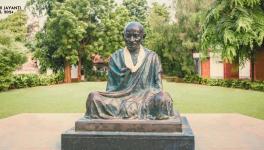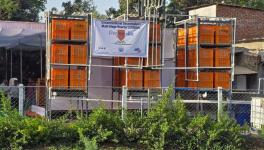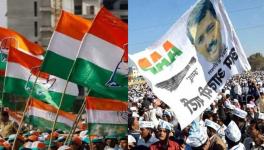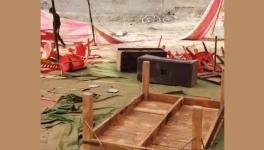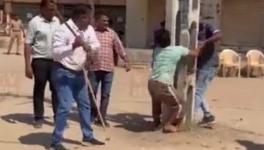In Landmark Judgement, 11 Accused Held Guilty Six Years After Dalit’s Murder in Una
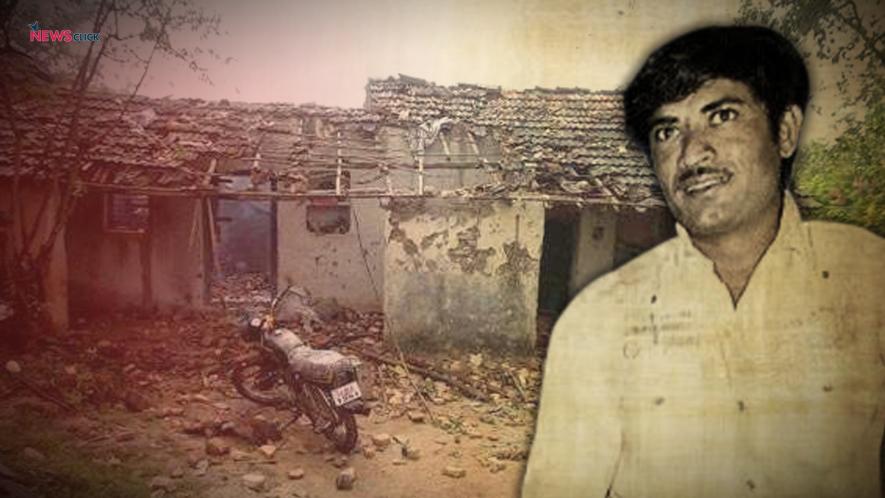
On September 13, 2012, Lalji Sarvaiya, a 27-year-old Dalit youth of Ankolali village, Una taluka, Gir Somnath district, Gujarat was burnt alive in his own house by a mob of about 500 upper caste men of his village. Six years later, a Special Atrocity Court of Una passed a judgment in the case declaring 11 accused guilty and sentencing them to life imprisonment until death with a fine of Rs 54,500 each.
Additional District Judge SL Thakkar, who gave the judgement, stated that the case was ‘rarest of the rare’ and that none of the convicts would be entitled for remission of the quantum of punishment.
“This is a landmark judgement that has come in such a case of atrocity against Dalits in Gujarat. The 11 accused – Bhana Kana, Babu Dana, Diru Vira, Bhikha Vira, Ram Vira, Pancha Lakha, Pravin Dhiru, Hamir Arjan, Arjan Babu, Gavru Kana and Lalji Vasram who were in jail for last six years were held guilty under sections 302, 324, 323, 436, 449, 342, 143, 147, 148, 149 and 120(B) of the Indian Penal Code. This apart the accused were also held guilty under Prevention of Atrocity Act by the Special Atrocity Court of Una,” Govind Parmar, one of three advocates pursing the case told Newsclick.
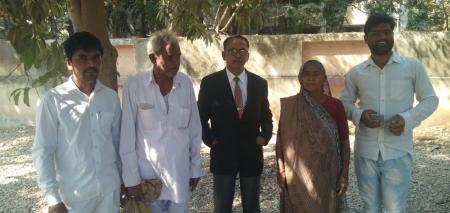
Advocate who fought the case with family of Lalji Sarvaiya
Noticeably the judgement has created an uproar amongst upper caste people of villages in and around Una taluka.
“There were about five to six thousand people in support of the accused in and around the court in Una,” added Parmar, who as ordered by the court, was escorted by the police till outside the limits of the Una town.
Piyush Sarvaiya, brother of Lalji Sarvaiya, who was present at the court with his family, was escorted back to his home by the local police.
“Police escorted us till our home and left but what if something happens at night. I fear for safety of my family now,” said Piyush Sarvaiya told Newsclick.
“A backlash is expected after such a judgement that incarcerates 11 men all belonging to upper caste. After the flogging incident happened in Una, a huge protest rally was carried out. But even as the rally made its way through Una, the area remained tensed as Dalits were socially boycotted in one village in the taluka,” said Raju Solanki, a veteran Dalit activist based in Gujarat.
Noticeably, the case has gone through twists and turns over the years. Following the incident, Piyush Sarvaiya met three advocates Manoj Srimali, Bhanubhai Shekhava and Govind Parmar through a civil society group in Ahmedabad. Govindbhai Parmar fought their case in Una district court that resulted in arrest order of 11 accused from Ankolali village. But soon the arrest order was challenged in the High Court of Gujarat.
“The High Court stayed the arrest order and the 11 accused remained imprisoned. Thereafter talks of compromise were initiated by the families of the accused. They wanted the case to be dropped,” said Govind Parmar.
“We were offered money in crores and then threatened till the year 2015. But we remained firm on our stand of pursing the case,” Piyush Sarvaiya stated.
Lalji Sarvaiya was the one of four sons of Kalabhai Sarvaiya, whose family of fourteen members was the only dalit family residing in Ankolali, a village of about 200 households dominated by Koli Patels and Darbars considered upper caste in social hierarchy. While the Sarvaiyas did live in fear but their economic condition was better than other Dalits in the state.
Lalji Sarvaiyas used to work in a stone quarry that fetched him a handsome salary. His three brothers earned well too and the family owned a house and 15 bigha of agricultural land that Kalabhai Sarvaiya had received about 40 years ago. They might not have been rich as Patels in their village but were better off than many Koli Patels of Ankolali.
“We were the only Dalit family and were considered lowest in social hierarchy but financially we were better off than some Kolis of the village. We had four motorcycles, 15 bigha of agricultural land, a bicycle repair shop in the family. But our primary income came from cultivation. Crop was good as the land was fertile and we had government electricity connection and borewell as well. Our family would earn about Rs 3-4 lakhs a year. We also owned some cattle and a horse,” says Piyush.
“But that night we lost all,” he adds.
“They burnt Lalji in our own house, nothing was left,” shares Piyush.
Following the incident, Sarvaiyas who were too scared to continue residing in Ankolali fled the village and took refuge in a rented house in Una town. The revenue department of Gujarat officially declared them refugees in 2013.
“In the past six years the legal case has not been the only fight the Sarvaiya family has fought. Rehabilitation became a major issue after they fled from Ankolali,” states Govindbhai Parmar.
After fives years, the family was settled at the outskirts of Delwara village in Una taluka owing to objection from the villagers.
“Every time the government surveyed a piece of land for us to settle, there was an opposition from upper caste people of each village,” shares Piyush.
However, as the family was putting their lives back together in Delwara village, another incident in the year 2016 shook the family and affected the case as well. Three of Kalabhai’s nephews were flogged by upper caste men in Una.
“It was during this time that the case was under trial in Gujarat High Court and our main witness Rijiben turned hostile,” recalls Govind Parmar.
Lalji Sarvaiya was accused of having an affair with Rijiben, a young woman not only belonging to upper caste but also a relative of Sarpanch of the village. On ground of such accusation upper caste villagers of Ankolali called a bhua (a black magic practitioner) who after a ritual declared Lalji Sarvaiya had Rijiben at his house.
Following which the mob locked the doors of the house, doused the house with kerosene and put it on fire, burning Lalji Sarvaiya to death with it. Reportedly two days after the Lalji was burnt to death, Rijiben came to know of the incident and managed to flee Ankolali.
“She managed to reach a government-sponsored women’s home in Bhavnagar district and told the then in-charge in writing that she feared for her life. The letter was submitted as evidence,” shared Govind Parmar.
“In 2016, Rijiben, in a statement to High Court stated that she was home with her parents the night Lalji was killed. On being cross questioned about the letter she claimed she was illiterate and could neither read or write. Hence letter couldn’t have been written by her,” he added.
“Later case continued in special atrocity court of Una and now finally the family of Lalji Sarvaiya got justice,” added Parmar.
Get the latest reports & analysis with people's perspective on Protests, movements & deep analytical videos, discussions of the current affairs in your Telegram app. Subscribe to NewsClick's Telegram channel & get Real-Time updates on stories, as they get published on our website.









